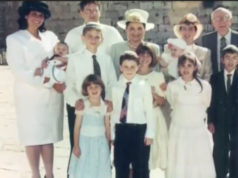 From Nobel Peace Prize Winner Elie Wiesel comes Rashi, a powerful introduction to the wisdom of the great Biblical and Talmudic commentator of the Middle Ages.
From Nobel Peace Prize Winner Elie Wiesel comes Rashi, a powerful introduction to the wisdom of the great Biblical and Talmudic commentator of the Middle Ages.
This deeply personal book looks at the life and work of Rashi, Rabbi Shlomo Yitzchaki, whose phrase-by-phrase explanation of the oral law has been in every printing of the Talmud since the 15th century.
Both beginners and advanced students of the Bible rely on Rashi’s groundbreaking commentary for simple text explanations and Midrashic interpretations. His perspective, encompassing both the mundane and the profound, is timeless and Wiesel is an expert guide to the lucidity of Rashi’s writings.
Wiesel brilliantly evokes the world of Medieval European Jewry, a place of towering scholars and closed communities, ravaged by outbursts of anti-Semitism and decimated by the Crusades. Rashi is a heartbroken witness to the suffering of his people, and through his responses to the pressing religious questions of the day, we see another side to the greatest of all interpreters of the sacred writings.
A spiritual and religious leader, Rashi set the standard for all subsequent Biblical and Talmudic commentary. The most humble and erudite of scholars, Rashi pioneered a disarmingly simple approach to studying Jewish texts, the results of which have reverberated for centuries. Today, nearly a thousand years since his birth, it is impossible to conceive of studying the Torah without his commentary.
In the book, Wiesel paints a loving portrait of Rashi. He offers multiple examples in which Rashi finds great meaning in seemingly tiny textual choices.
“We need imagination to write about him,” Wiesel says. And while Wiesel admirably imagines the life Rashi led, he also doesn’t shy away from posing numerous questions that he cannot answer, from basic biographical questions to larger Talmudic matters.
Here is an excerpt from this powerful book.
Why Rashi?
And why me?
For centuries, others—many others—in lots of different countries, have written about his life and work in their native or sacred tongues. Why should I add my own analysis and my own commentary to these?
I think of Rashi and I feel overwhelmed by a strange nostalgia: my reaction appears to be both intellectual and emotional. Any why not say it? I discover I am sentimental. Ever since childhood, he has accompanied me with his insights and charm. Ever since my first Bible lessons, I have turned to Rashi in order to grasp the meaning of a verse or word that seemed obscure.
He is my first destination, my first aid. A veiled reference from him is like a smile, and everything lights up and becomes clearer.
Of course, it is the Jewish child in me who thanks him. But Rashi’s appeal is addressed to everyone. What I mean is this: his passion for delving into a text in order to find a hidden meaning passed on by generations can move, interest, and enrich all those whose life is governed by study.
His voice comes to us from afar, from a great distance in time and space, but it allows us to never turn our back on the goal and never go astray along the way.
Elie Wiesel is the author of more than 50 books, both fiction and nonfiction. He has been awarded the Presidential Medal of Freedom, the United States congressional Gold Medal, and the French Legion of Honor with the rank of Grand Cross. In 1986, he received the Nobel Peace Prize. He is Andrew W. Mellon Professor in the Humanities and University Professor at Boston University.



